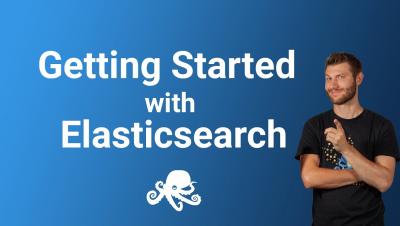Operations | Monitoring | ITSM | DevOps | Cloud
Search
Elastic Enterprise Search 8.6: Reduce time to relevant search results - for file systems, MongoDB, and Amazon S3
Elastic Enterprise Search 8.6 enables customers to index searchable content on file systems, network drives, MongoDB, and Amazon S3. With new connectors for network drives and Amazon S3, content indexed can easily be transformed for natural language processing (NLP) use cases with intuitive tooling to test and tune your search experience with the trained model of your choice.
Searching for the Answer? Try Splunk Federated Search
Search Observability Data In-Place: Store Where You Want, Query When You Want
When we created Cribl Search, we wanted to give systems administrators the ability to query data without having to spend resources on collection and processing first — but we didn’t stop there. With Search, we’re also making it possible to query all the data you’ve already collected, processed, and kept in places like object stores, file systems, analytics tools, S3 buckets, or other data stores.
Cribl Search: The Most Powerful Tool for Querying Data at Its Source
One of the most useful features of Cribl’s flagship solution Stream is its ability to separate the wheat from the chaff in your data’s journey from source to destination — Stream allows you to control what data goes to what system, Cribl Search, takes this to the next level by controlling what data should be collected before it is ever put in motion.
How to build scoped search suggestions and search query corrections
You get one shot to keep shoppers on your ecommerce website with relevant search results. According to Harris Poll, 76% of online shoppers abandon a retail website after an unsuccessful search. Therefore, it’s critical to optimize your search experience so buyers can find what they need fast. That’s the theory behind a modern search experience: Nowadays it’s not enough to simply provide a search bar that returns matching products.
Searching Observability Data Just Became Point & Shoot
The traditional approach for searching observability data is a tried-and-true: Once all the search staging is accomplished, we can perform high-speed, high-performance, deep-dive analysis of the data. But is this the best way or even the only way to search all that observability data? The answer to the first question is maybe, as it depends on what you are trying to accomplish. The answer to the second question must be a resounding no.
Elasticsearch Tutorial | Getting Started Guide for Beginners - Sematext
Unlock the full potential of your data with Elastic Search Platform
OpenSearchCon: Together after 18 Months
OpenSearch was created by the community for the community to continue to keep an open-source alternative to ElasticSearch and Kibana. The project has been hard at work for the last 1.5 years building, launching and iterating on this important initiative. Some remarkable milestones have been achieved, including over 5,800 stars on GitHub with 19 different community-led projects.










